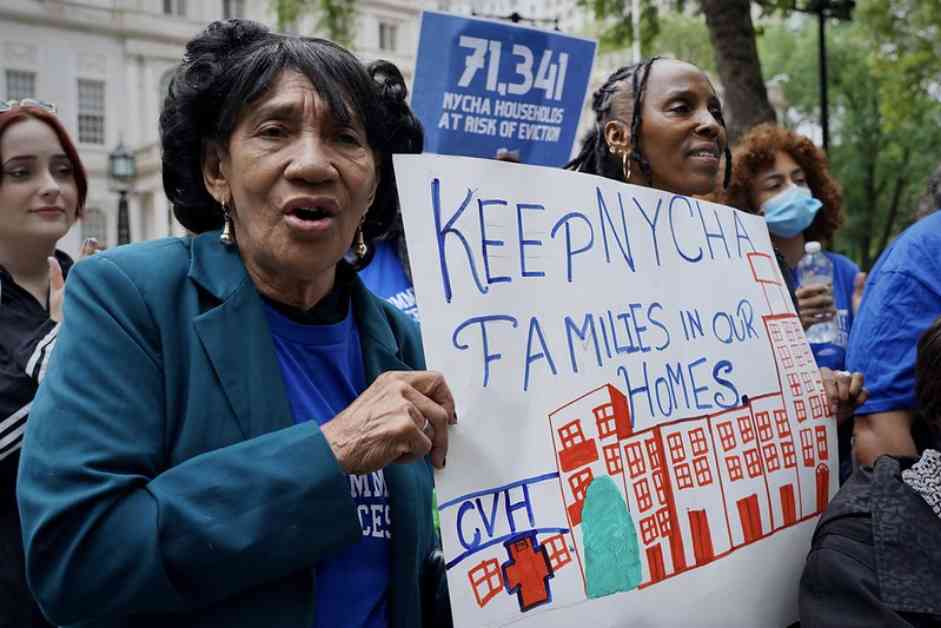NYCHA recently shared that over 70,000 households are still behind on rent payments, largely due to being excluded from the initial wave of state pandemic rent relief funding. NYCHA tenants and advocates rallied in June 2023, urging the budget to allocate rent relief funding for NYCHA tenants. The impact of being left out of the COVID-19 rent relief program in 2021 is still being felt today, with tens of thousands of public housing tenants struggling to catch up on rent.
During a recent City Council hearing, the focus was on evictions and rent arrears in public housing, highlighting the lack of state funding from the Emergency Rental Assistance Program (ERAP). The ERAP, launched in June 2021, aimed to provide financial relief to tenants affected by the pandemic by covering up to 12 months of back rent and three months of future rent payments directly to landlords on behalf of tenants.
NYCHA communities were among the hardest hit by COVID-19, with many residents facing illness and job loss. A year after the ERAP application began, more than 73,000 NYCHA tenants had outstanding rent payments, with only around 31,000 applying for state funding. It wasn’t until last year that public housing tenants started receiving rent relief funds after advocating for additional ERAP funds in the state budget specifically for public housing and Section 8 residents.
Despite receiving an estimated $159 million in ERAP funding, NYCHA still faces significant challenges with back rent. As of September 1, more than 70,000 households have rental arrears, including 20,000 senior heads of households. The average arrears per household is $6,915, spanning 14 months on average, with around 20 percent of households owing more than $10,000. Although the average rent billed by NYCHA is $651, the average rent collected is $399.
NYCHA heavily relies on rent payments for one-third of its operational budget for maintenance work. With nearly $80 billion in capital repairs needed over the next two decades, the housing authority is struggling to keep up. Rent arrears have steadily increased since the start of the pandemic, reaching $487 million as of now.
In addition to ERAP funding, NYCHA is hoping to receive rental assistance from the State COVID-19 Rental Assistance Program (CRA) and the federal HOME American Rescue Plan Program (HOME-ARP), which could amount to $35 million and $150 million, respectively. However, even with maximum funding from these programs, rent arrears are projected to remain at $300 million.
NYCHA resumed rent eviction cases in January 2022 after a two-year moratorium due to COVID-19. While the eviction rate is expected to rise slightly in the coming years, NYCHA emphasizes the importance of keeping tenants in their homes. Concerns were also raised about the Permanent Affordability Commitment Together (PACT) program, which transfers public housing properties to private management.
Despite efforts to connect tenants with resources like one-shot deals for rent assistance, NYCHA faces challenges in forgiving rent or arrears, unlike PACT sites. The conversion of NYCHA units to PACT sites has shown higher rent collection rates, with 92 percent of rent collected at PACT campuses compared to 68 percent at traditional NYCHA properties.
Households with rent arrears are encouraged to visit NYCHA property management offices to meet with housing assistants who can help connect them to resources. By addressing income, family composition, and specific needs, tenants can work towards paying rent on time or setting up a payment plan to clear their arrears.
For more information on this story, contact Tatyana@citylimits.org. If you wish to republish this article, refer to City Limits’ reprint policy.


